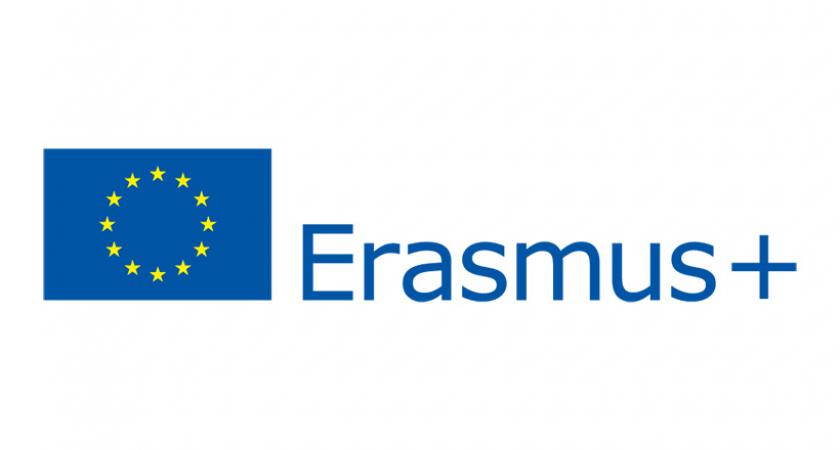Erasmus+

Photo Source: ec.europa.eu
Currently, we have seen more openness in Europe—empowering an increasing number of young Europeans to take advantage of all that Europe has to offer. Certainly, for the 9 million people who have gone abroad supported by Erasmus+ and its predecessor programs over the last 30 years, life in Europe with closed borders is almost unimaginable.
The Erasmus+ program (European Union programme for education, training, youth and sport) is managed by the European Commission (the EU's executive body), the Education, Audiovisual, and Culture Executive Agency (EACEA), a series of National Agencies in Program countries, and a series of National Offices in some Partner countries.
Erasmus+ brings such opportunities to students, staff, trainees, teachers, volunteers and more. For students, it offers the possibility to study or gain work experience in a different European country while completing a degree. It's not just about Europe or Europeans either - with Erasmus+, people from all over the world can access opportunities.
Since 2004, more than 1,200 Indonesian students have benefitted from EU’s Erasmus+ scholarship programme. In 2016, more than 160 Indonesian students have been awarded scholarships under the Erasmus+ (Erasmus Plus) Programme of the European Union (EU), which was more than 40% than the previous year. Students travelled to various EU Member States to undertake a Bachelor, Master, Doctorate or Post-Doctorate studies in Europe, either full degrees or short-term exchange programmes. Majority of students and scholars were part of the International Mobility schemes and some of them are studying in at least two different universities located in two different European countries.
In total, the number of Indonesian students studying in Europe by the end of 2016, including self-funded students, had reached almost 6,000 people which were three times higher than in 2011. In total, almost 9,000 Indonesian students are currently studying in Europe.
What activities/programs are funded under Erasmus+?
Key Action 1: Learning Mobility of Individuals
This Action, being the largest action in Erasmus+, is all about providing opportunities for individuals to improve their skills, enhance their employability and gain cultural awareness. You're able to find mobility projects offering structured study, work experience, job shadowing, volunteering, training and teaching opportunities to staff and learners. Read more here.
Key Action 2: Cooperation for Innovation and Exchange of Good Practices
Since this Key Action is all aboutenabling organisations to work together, the projects funded under this focuses on sharing, developing and transferring innovative practices in education, training and youth provision between participating countries. Read more here.
Key Action 3: Support for Policy Reform
This Key Action covers any type of activity in support of policy reform in the education, training and youth fields—particularly the modernisation of education and training systems. They are implemented directly by the European Commission or through specific calls for proposals managed by the Executive Agency. Read more here.
Jean Monnet
The activities, mainly with the aim to foster the dialogue between the academic world and policy-makers, are designed to promote excellence in teaching and research in the field of EU studies worldwide. Jean Monnet activities cover the field of higher education only. Read more here.
Sport
The funding in the field of sport aims to support actions such as work placements abroad for sport apprentices, staff training for coaches, volunteers or youth workers involved in delivering sports activities in a formal or informal context—any actions that result in the development, transfer, and implementation of innovative ideas and practices in sport at a European, national, regional and local level. Read more here.
Which Erasmus+ programs offer scholarships?
Out of the six programmes above, only Key Action 1 and 2 provides scholarship opportunities managed by the EACEA:
1. Erasmus Mundus Joint Master Degree (EMJMD)
This scholarship is available for students all over the world. Students at Master level can apply to a maximum of three different programmes. Read more here.
2. Intra-Africa Academic mobility scheme
This scholarship supports higher education cooperation between countries in Africa, aiming to promote sustainable development and increase the availability of trained and qualified high-level professionals in Africa. Read more here.
3. Intra-ACP academic mobility scheme
This program supports mobility of students and university staff in Africa, the Caribbean and the Pacific (ACP) regions with similar aims to the Intra-Africa Academic mobility scheme. Read more here.
4. Erasmus Mundus Action 2 Partnership
This program is set up with the aim to contribute to the sustainable development of partner countries in the field of higher education, in accordance with EU external policy objectives. The action is based on Partnerships between European and partner country higher education institutions and includes a scholarship scheme for mobility of students (undergraduate, master, doctoral and post-doctoral) and staff. Read more here.
5. Marie Sklodowska-Curie Actions (MSCA)
The MSCA is mainly for doctoral programmes. They provide grants for all stages of researchers' careers; be they doctoral candidates or highly experienced researchers and encourage transnational, intersectoral and interdisciplinary mobility. Applicants (individuals and/or organisations) are able to choose research and innovation fields feely. Read more here.
ASEAN students are able to apply Erasmus Mundus Joint Master Degree (from Key Action 1) and Erasmus Mundus Action 2 Partnerships.
How much is the scholarship worth?
Erasmus+ is a full-coverage scholarship programme – covering tuition fees, living costs and return airfares.
EMJMD: € 24,000 per student for a one-year course (travel expenses, tuition fees, monthly stipends, accommodation, etc) or € 48,000 per student for a two-year course.
EMJD: € 60 000 to € 130 000 Euro for three-year Joint Doctorates
When is the deadline for applications?
Vary from one EMJMD / EMJD to another, the applications open from September until December each year. Please check individual EMJMD and EMJD programmes for further details.


